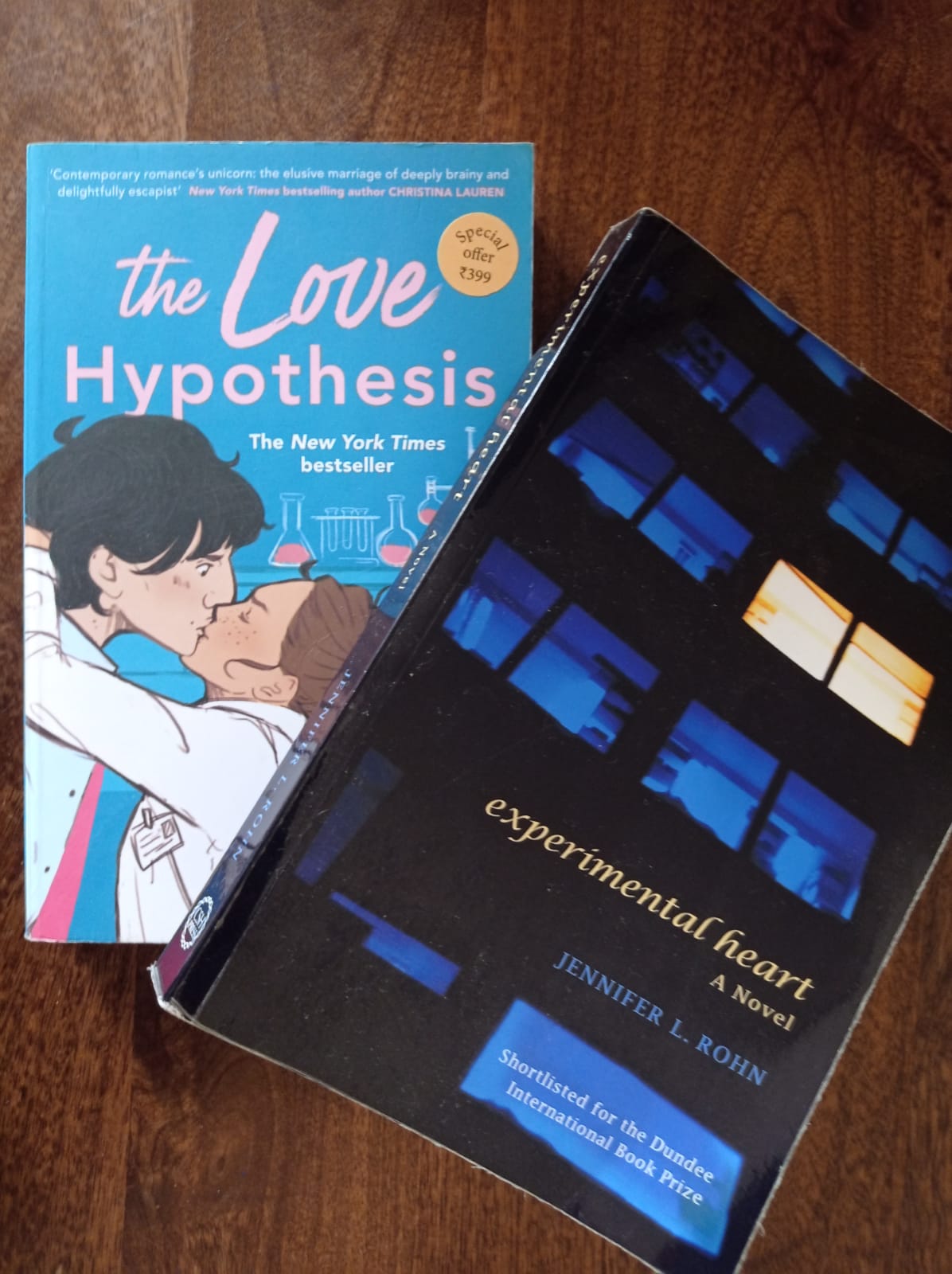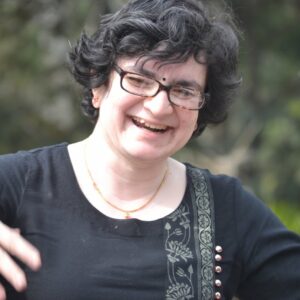Let’s talk about love. Nothing new. It’s all around, in the air. In a scientific institute, which is as near a bio-bubble in everyday life as can be, we all see the tentative overtures of love, the distracted state of early love, love in full bloom and then sometimes the broken hearts mourning their loss, all through the lens of the frustrated guide or joyful friends or annoyed lab mates, depending on where we may be placed at that particular phase of life. So, one wonders why love stories are not written about love amidst the test tubes. I was pleasantly surprised to recently discover two separate books on this topic. Both set in biology labs, both poles apart from each other in their treatment of the topic.
The Love Hypothesis by Ali Hazelwood. Hazelwood is a cognitive neuroscientist (with all my googling I was unable to figure out where her lab is!) who, near the end of her PhD, got frustrated and decided to write romance novels in a science setting. Love Hypothesis, her first book, is in fact just a regular romcom, with the regular elements of the strong silent type hero and a bubbly crazy heroine. Her modus operandi is, as she says in her numerous interviews given when her book hit the New York Times bestseller list (!!), to use the usually used tropes of romcoms, but transplant it into a lab/science setting. And that is exactly what she has done. It is hilarious, but rather incongruous. I have seen professors who are obsessed with work and are anti-social, but I am yet to see one who also sports 6-pack abs and is drop-dead gorgeous. But keep looking, perhaps they exist. I can certainly relate to the feelings of insecurity, inadequacy, lack of funds and big ambitions sported by our heroine, a PhD student. But she does get into some really contrived unreal situations. Of course, love blooms and they live happily ever after. So, as a book of the romcom genre, set in the lab, this book fits the bill.
Experimental Heart by Jennifer L Rohn. Rohn is a microbiologist with an interest in urinary tract infections who works in University College London. Experimental Heart is her first novel. It is difficult to define the book as a romance, although that is the primary undercurrent that runs through the book from beginning to the end. Love (or not?) between two postdocs across the labs windows where both are busy burning the midnight oil. Andy and Gina, both brilliant in their own fields, populate the two sides of science, academia and industry. We follow the two of them as they negotiate the prejudices and stereotypes of the light and the dark side. As they desperately try to make a difference, do something relevant, make their lives and their science meaningful all while stealing glances across the room, borrowing enzymes, addressing reviewer’s comments, getting attracted to ‘other’ people. Gina would take all help available to make her vaccine against a deadly disease that affects children, a reality. But Andy uncovers uncomfortable evidence that there may be foul play afoot, but lacks the confidence to break it to Gina. In the end, true to a good mystery, things heat up, it all comes apart and Andy gets a chance to play the knight in shining armour. But Experimental Heart is a complex love story. There are no black and whites, no rights and wrongs, no surety in love. It feels uncomfortably like real life. Rohn uses the storyline also to throw out debates on academia and industry, the ethics of animal research, the rights and wrongs of genetically modified crops, debates that we as scientists face frequently; where we are left with the lingering unease that we are not very sure of our righteousness although we cover it up with a general trust-me-I-am-a-scientist bluster.
So, in summary, if tonight you are in the mood for a little fantasy to take your mind off those failed experiments and are at your wit’s end, pick up The Love Hypothesis. However, if it is a day when you are of a more ruminative mind, but still need to take your mind off your own problems, take Experimental Heart to bed.
Chetana Sachidanandan is a scientist-writer with a fascination for a striped fish that’s too small to eat and just too beautiful to describe.


